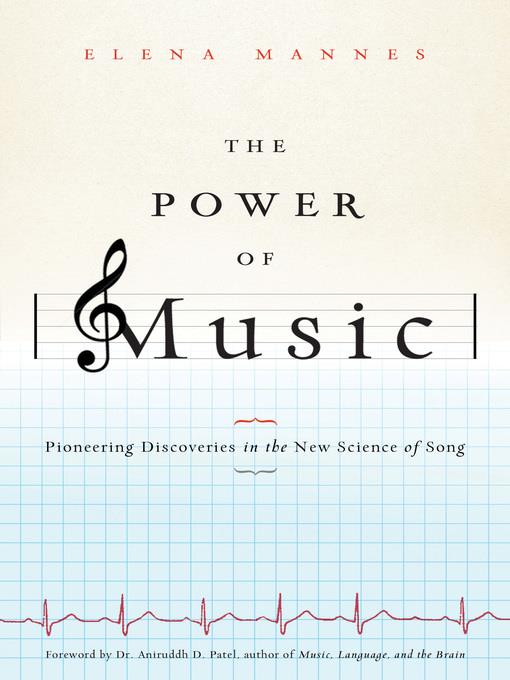
The Power of Music
Pioneering Discoveries in the New Science of Song
- اطلاعات
- نقد و بررسی
- دیدگاه کاربران
نقد و بررسی

March 1, 2011
Preliminary but striking investigations into the effects of music on everything from string theory to a baby's cry, from documentarian Mannes.
One of the author's main avenues of exploration is how music impacts the human body, and in turn how the human body impacts music. Much of that work seeks to understand the nature/nurture origins of the musical experience: Why is there music in the first place, and what evolutionary advantage does it serve? One possible answer is that singing helps attract a mate, but that implies that we must enjoy music on some basic level, which may be answered by the fact that listening to music releases hormones like dopamine and oxytocin. Mannes delivers the findings of scientists in an easy voice—this includes her forays into the thickets of music theory as well as brain structure and its response to music—and she is very clear when the material is conditional or the result of only one study. Many of the early findings are truly surprising: that we may be born with perfect pitch, but lose it if we do not cultivate it; that babies cry in musical intervals of 3rds, 4ths and 5ths; that someone took the time to fashion a flute out of a vulture bone 40,000 years ago; that Neanderthals, who had no spoken language, communicated by singing to one another. The author maintains reader interest by touching on plainly fascinating ideas, such as whether there are elements built into musical structure that elicit emotions and whether those emotions are instinctual or associative; the role of music in the healing arts; and the mystery of entrainment. Mannes also examines the idea of a music of the spheres. "Even the Earth has a hum. Every object has a natural frequency at which to vibrate," she writes. "Even black holes sing."
A well-tempered introduction to music's far-reaching influence on man, beast and cosmos.
(COPYRIGHT (2011) KIRKUS REVIEWS/NIELSEN BUSINESS MEDIA, INC. ALL RIGHTS RESERVED.)

April 15, 2011
Mannes's background as a documentary filmmaker and scion of one of the great American music families (relations include the Damrosch conductor/composers and the founders of the Mannes College of Music) has prepared her well for this investigation of how music affects people and other animals. Detailing a variety of scientific experiments, she shows the effects of sound frequencies and vibrations on body organs and brain waves; her study culminates in documentation supporting music therapy. Mannes's intercontinental explorations range from songbird studies to infants' melodic preferences to the origins of the universe (one topic on which her discussions seem rather far-fetched if fascinating). Interviews with influential musicians such as Bobby McFerrin help lighten an otherwise rather dense text. The useful bibliography cites sources almost exclusively from the past 15 years, bolstering Mannes's case that this is a timely concept. VERDICT This title will be welcomed by those who accept music as a positive force and by readers interested in current scientific trends. It fits well alongside recent books like Philip Ball's The Music Instinct and John Powell's How Music Works.--Barry Zaslow, Miami Univ. Libs., Oxford, OH
Copyright 2011 Library Journal, LLC Used with permission.




دیدگاه کاربران